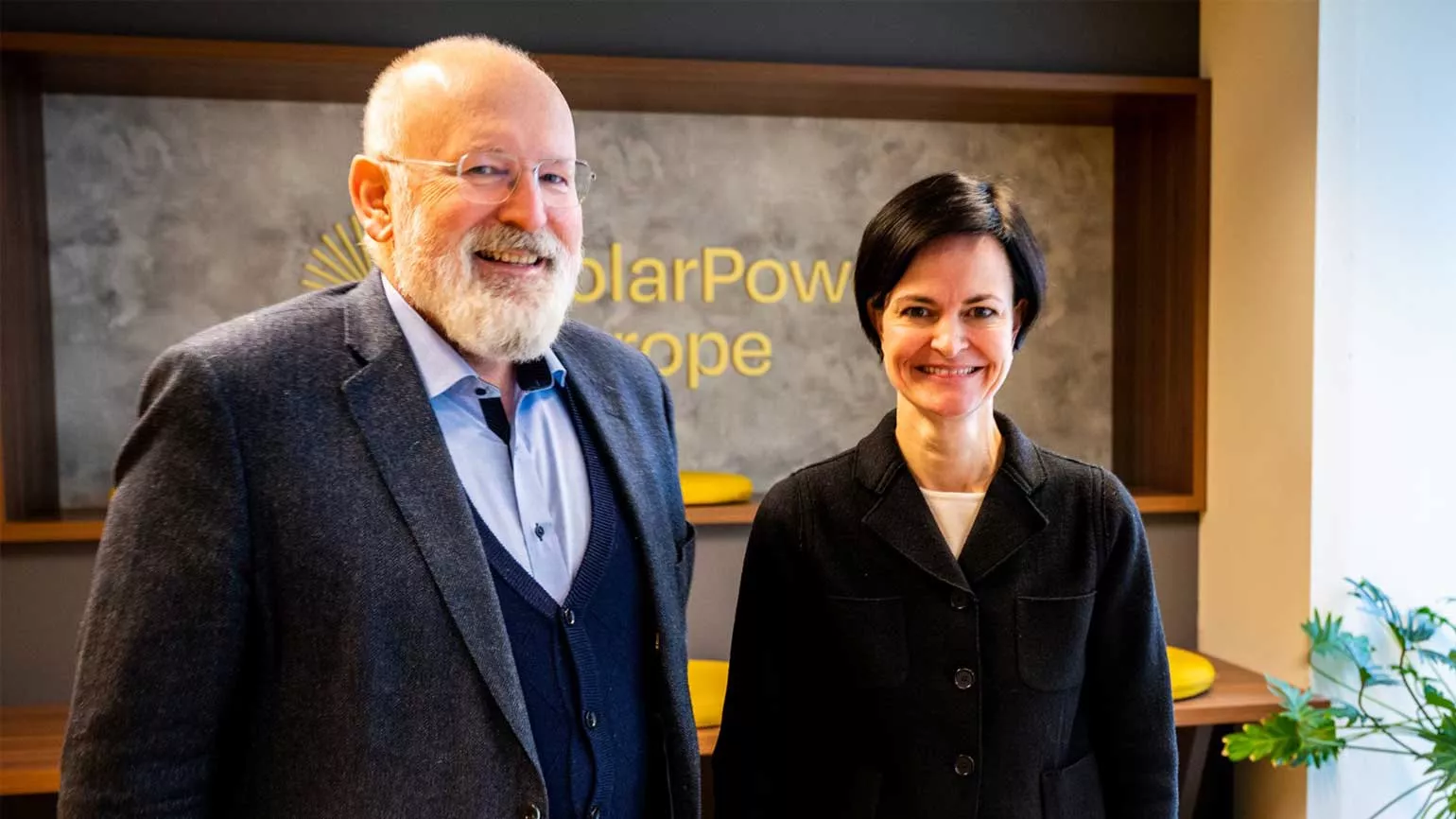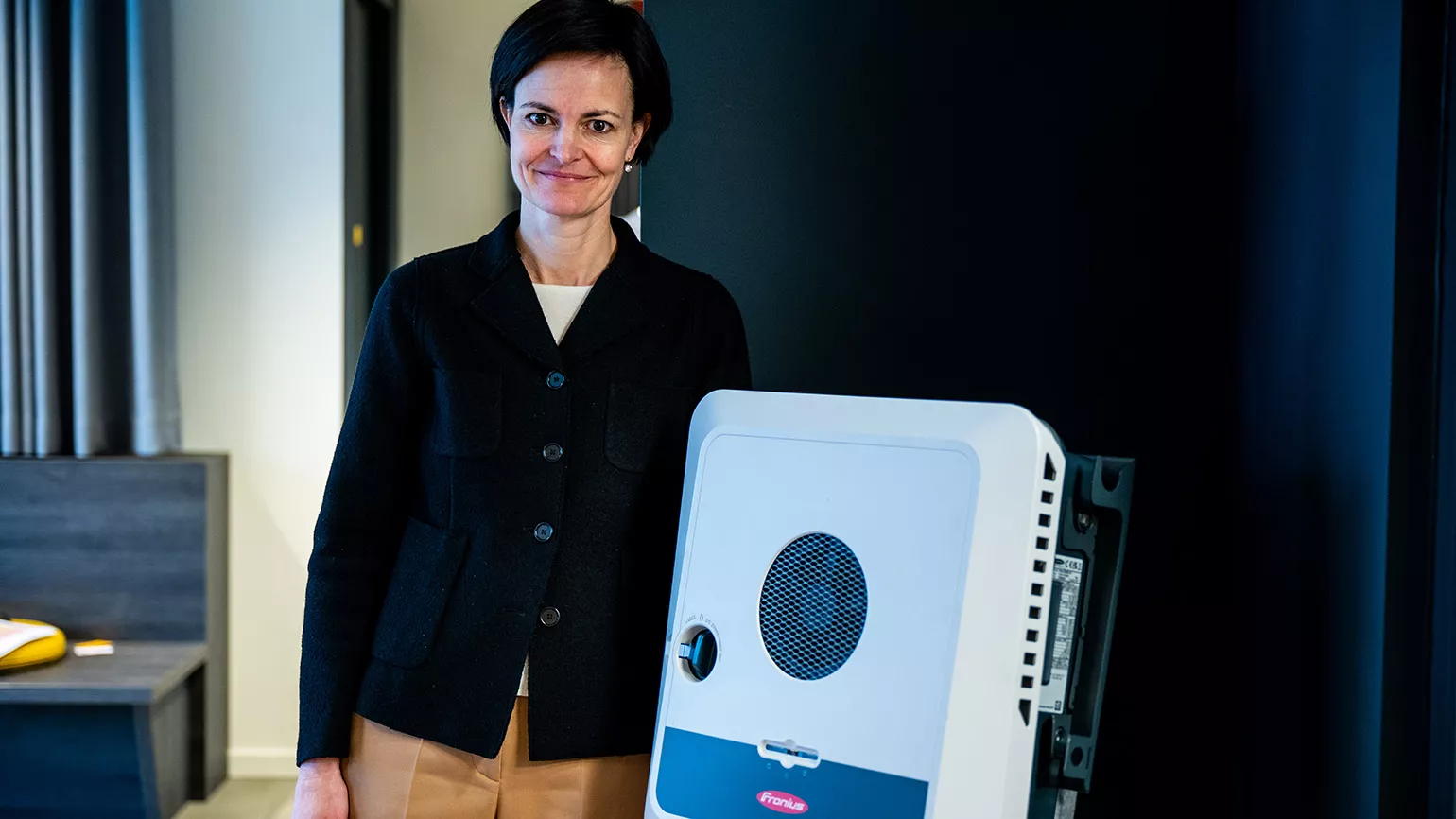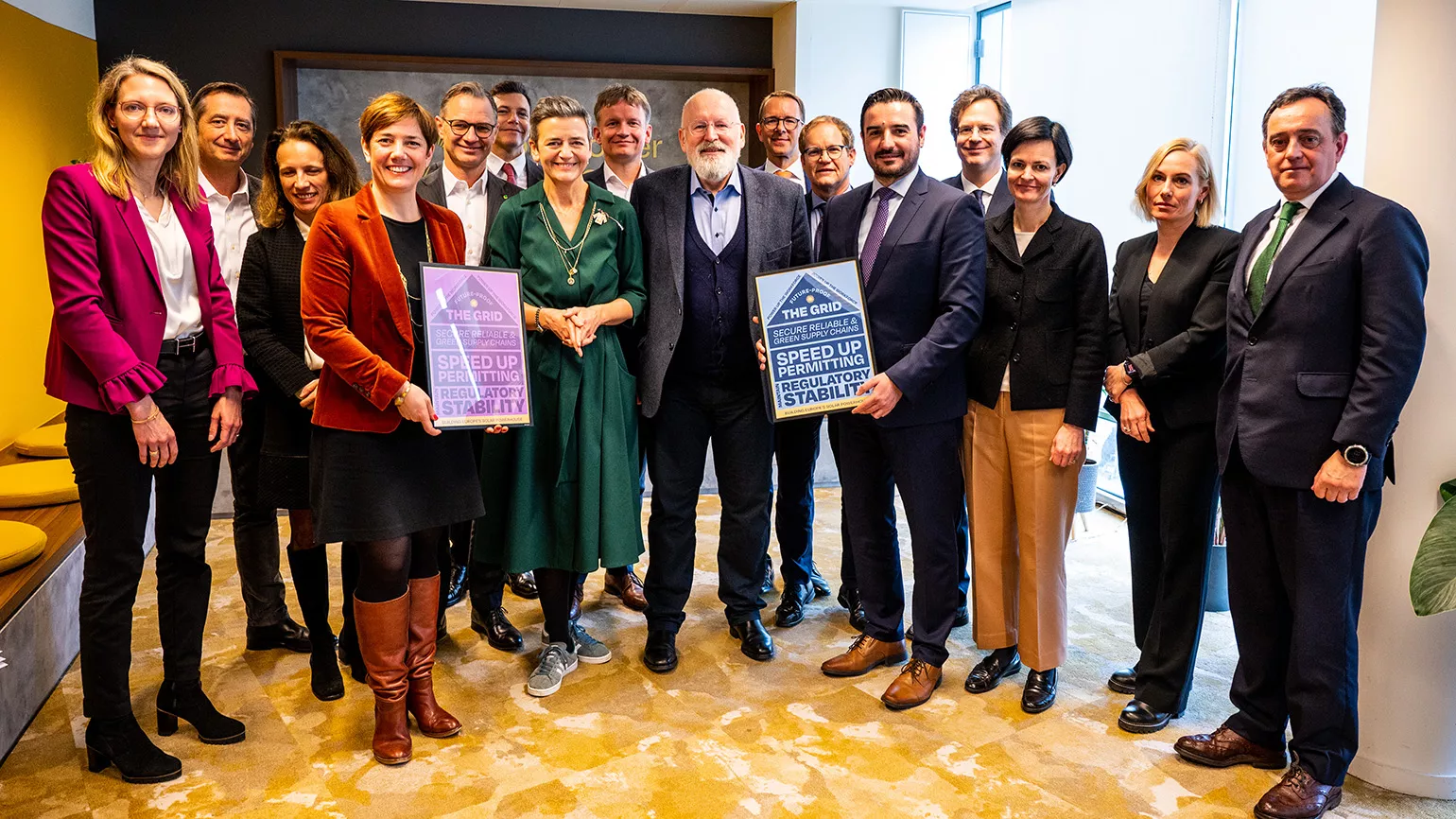European turbo for the solar industry
REPowering Europe – with the power of the sun
How can the green energy transition in Europe be accelerated? And how can the solar industry contribute? These and other questions were the focus of the EU Solar CEO Forum held on 7 March in the run-up to the SolarPower Summit in Brussels. Fronius CEO Elisabeth Engelbrechtsmüller-Strauss and 11 other CEOs of the most prominent European companies in the solar industry accepted the invitation of SolarPower Europe, the group lobbying for a solar value chain in Europe, to discuss a secure future for Europe’s solar industry and the conditions required for that.
“Solar PV occupies a central position in Europe’s future energy supply. This requires a strong, European solar industry. We’re ready for that – so it’s time for us to sit together at the table and get working on the detailed plan for implementation,” said a motivated Elisabeth Engelbrechtsmüller-Strauss.
The highlight of the meeting was the opportunity for personal dialogue with EU Commission Executive Vice-Presidents Frans Timmermans and Margrethe Vestager, as well as EU Commissioner for Energy Kadri Simson and EU Commissioner for Environment, Maritime Affairs and Fisheries Virginijus Sinkevičius.

Inverters – the backbone of renewable energy technology
In her short presentation to EU Commission Vice-President Vestager, Fronius CEO Elisabeth Engelbrechtsmüller-Strauss emphasized the crucial role of inverters as an essential component of Europe’s solar energy supply. As the heart of the PV system, inverters not only control the behavior of the entire energy system for many millions of households and commercial installations but also contribute in important ways to grid stability in the various countries. Inverters are also responsible for relevant user and plant data as well as remote access rights. This makes them key players in the growing digitalization of power generation and demand-side management. In this context, Engelbrechtsmüller-Strauss appealed to EU policymakers to recognize inverters as strategically important components of the green energy transition and to incorporate them accordingly.


“Europe still has high technological competence and the corresponding production capacities! Component manufacturer Fronius alone is producing more than 7GW of PV inverter power in Europe this year.”
Focusing on potential, learning from the past
In the global tug-of-war for technology leadership and production capacities of inverters for the fiercely competitive solar market, European manufacturers are technologically ahead – for the time being, as the complex regulatory environment offers hardly any relief for European companies.“We are currently in a very critical situation: Europe must act quickly and commit to specific framework conditions, otherwise there will be massive import dependency and production outflows in the future,” Engelbrechtsmüller-Strauß said, pointedly outlining the current situation. Only a strengthened European value chain will be able to counteract the threat of de-industrialization of strategically relevant components for renewable energy supply – such as inverters. The Fronius Managing Director asserted that if production capacities and supply chains were to migrate to China or the United States, it would be very difficult to bring them back to Europe – a realistic assessment, as has already been demonstrated by dwindling PV module production in Europe. In her talks with the EU Commissioners, Elisabeth Engelbrechtsmüller-Strauss once again stressed the importance of inverter production in Europe and of creating an environment that sustainably promotes and fosters the competitiveness and resilience of quality “made in Europe.”

Fact box:With a four-pillar plan, the EU Commission has provided specific solutions for strengthening Europe as a location for industry and presented the Green Deal Industrial Plan at the beginning of February. The EU is responding with the plan to the existing state-controlled industrial policy initiatives of China, as well as policies such as the Inflation Reduction Act (IRA) in the United States, which pose major challenges for many European companies in international competition. The first pillar of the EU’s comprehensive plan – the Net Zero Industry Act – comprises the legal framework for carbon-neutral industry. It defines measures for streamlined and accelerated approval and financing procedures as well as strategically relevant technologies to secure Europe’s long-term energy independence. These include PV modules and components for wind turbines, the production of which is being further intensified in Europe. The EU Commission’s statement of intent undoubtedly pushes the debate over Europe’s energy independence and achieving EU climate targets by 2050 in a positive direction, but it still leaves some questions unanswered. These questions were the focus of the SolarPower Summit in Brussels in early March. |
